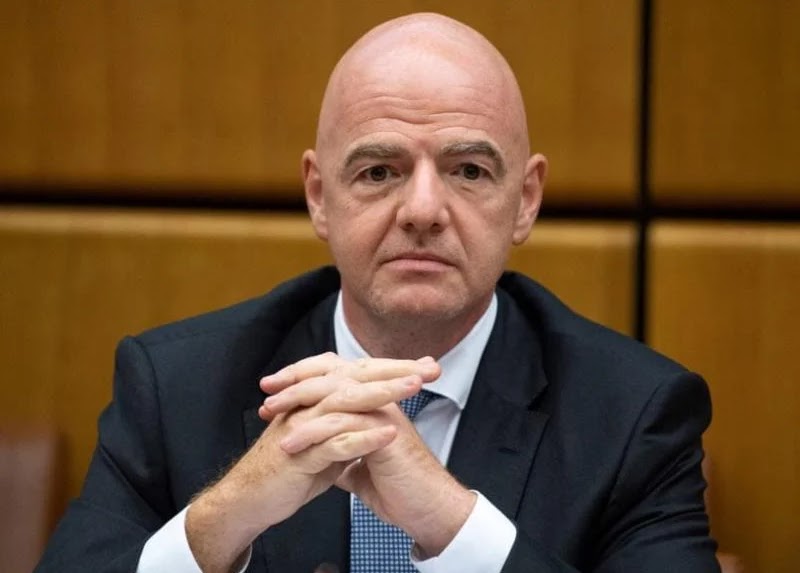Because no one stepped forward to challenge Gianni Infantino, he will continue to lead FIFA for another four years.
The election will be held on March 16 in Kigali, Rwanda, and according to FIFA, the 52-year-old Swiss lawyer was the only one to file a candidacy by the deadline.
Following a competition between five candidates, Infantino was selected to succeed Sepp Blatter in 2016. In 2019, he was re-elected without opposition. Now it appears that he will continue working after the US, Canada, and Mexico host the 2026 World Cup.
FIFA rules also allow Infantino to run for the last time in 2026. If he wins, he will be in charge for the next World Cup cycle, from 2026 to 2031.
Because of a quirk in FIFA’s rules, the first three years of Infantino’s presidency, when he finished Blatter’s unfinished term, do not count toward the 12-year limit agreed to in reforms passed during a long corruption crisis before Infantino’s first election.
Two special prosecutors in Switzerland are looking into Infantino’s three unrecorded meetings with then-attorney general Michael Lauber in 2016 and 2017 when both the US and Swiss governments were looking into football officials. This is a political threat to Infantino’s leadership.
It is currently unclear how that case, which the Swiss parliament oversees, is proceeding or how much jurisdiction it has over Infantino as a private citizen. He has said that he did nothing wrong.
Infantino still needs to pass a check of his honesty and eligibility by a FIFA-appointed review panel led by an Indian judge named Mukul Mudgal.
Europe and South America will bid to host the 2030 World Cup. In 2024, FIFA members will vote on the winner.
Ukraine joined Spain and Portugal’s bid to co-host the event in October. Uruguay, which hosted the event in 1930, is part of a bid to celebrate the event’s 100th anniversary with Argentina, Chile, and Paraguay.
The CEO of Kick It Out said that FIFA’s president, Gianni Infantino, is “deluded” to think that people at the World Cup in Qatar will stay quiet about human rights issues.
Infantino sent a letter to all 32 competing countries earlier this month, telling them to pay attention to what was happening on the field and “not allow football to be dragged into every ideological or political battle that exists.”
In the 12 years leading up to the finals in Qatar, there has been a lot of controversy about how the country treats migrant workers and how safe LGBTQ+ people are in a country where same-sex relationships are illegal.
Tony Burnett said that giving the finals to Qatar would be like giving the tournament to South Africa during apartheid. He was not impressed by Infantino’s move and thinks that LGBTQ+ players have a right to question FIFA’s ability to run the football.
“[The letter] is bizarre. It’s deluded to a large degree because if you make a decision to hold a World Cup in a country that is not inclusive of any group of people. Then you expect people to be silent about it and just get on board, believing that football is somehow detached from broader society; it’s just ridiculous,” he said.
“If I was an LGBTQ+ player, across football, and that is what’s being said from my governing body, I’d have serious question marks about the fitness for the purpose of my governing body and its ability to represent my views. So no, I don’t agree with what FIFA said at all.
“I also think it’s completely unfair that we should ask our players and our coaches and managers to answer questions based on politics and based on inclusion when actually the people we should be asking about it is FIFA, who made the decision in the first place.”



